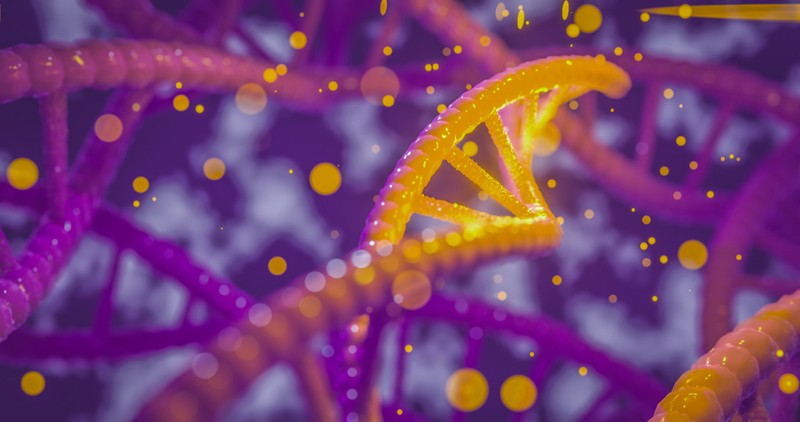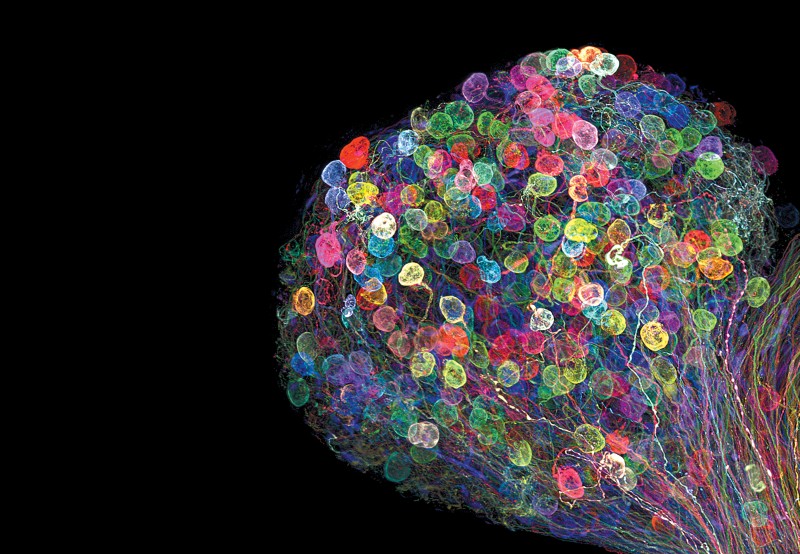每日外闻88
通过吸烟引起的尼古丁成瘾是全世界可预防性死亡的主要诱因。人类全基因组关联研究已将编码α5,α3和β4烟碱乙酰胆碱受体(nAChR)亚基的CHRNA5-CHRNA3-CHRNB4基因簇中的多态性与尼古丁成瘾联系在一起。β4* nAChRs与尼古丁戒断,厌恶和强化有关。在这里,我们显示β4* nAChRs也参与非尼古丁介导的反应,这些反应可能倾向于成瘾相关行为。β4基因敲除(KO)雄性小鼠在美味的食物奖励和基于奖励的Go/No-go任务的操作条件调节中表现出新颖性增强的自发活动,较低的焦虑基线和动机缺陷。为了进一步探索奖赏缺陷,我们使用了颅内自我给药(ICSA)的方式,直接将尼古丁注射到小鼠腹侧被盖区(VTA)。我们发现,在低剂量的尼古丁下,β4KO小鼠自我给药的量小于野生型小鼠(WT)。相反,在高尼古丁剂量下,这种情况被逆转,β4KO比WT小鼠自我给药更多,而β4过表达的老鼠回避尼古丁注射。β4KO小鼠的内侧缰核(MHb),足突间核(IPN)和VTA中β4亚基的病毒表达显示出剂量和区域依赖性差异:VTA中的β4* nAChRs在所有剂量下都能增强尼古丁介导的奖励作用,而MHb-IPN途径中的β4* nAChRs会限制高尼古丁量下的VTA-ICSA。总之,我们的研究结果表明,**缺乏功能性β4* nAChRs会导致奖励敏感性不足,包括在高剂量尼古丁下ICSA升高,而后者可通过在MHb-IPN中重新表达β4* nAChRs而得以恢复。**这些数据表明,β4是奖励相关行为的关键调节器。
Nicotine addiction, through smoking, is the principal cause of preventable mortality worldwide. Human genome-wide association studies have linked polymorphisms in the CHRNA5-CHRNA3-CHRNB4 gene cluster, coding for the α5, α3, and β4 nicotinic acetylcholine receptor (nAChR) subunits, to nicotine addiction. β4nAChRs have been implicated in nicotine withdrawal, aversion, and reinforcement. Here we show that β4nAChRs also are involved in non-nicotine-mediated responses that may predispose to addiction-related behaviors. β4 knock-out (KO) male mice show increased novelty-induced locomotor activity, lower baseline anxiety, and motivational deficits in operant conditioning for palatable food rewards and in reward-based Go/No-go tasks. To further explore reward deficits we used intracranial self-administration (ICSA) by directly injecting nicotine into the ventral tegmental area (VTA) in mice. We found that, at low nicotine doses, β4KO self-administer less than wild-type (WT) mice. Conversely, at high nicotine doses, this was reversed and β4KO self-administered more than WT mice, whereas β4-overexpressing mice avoided nicotine injections. Viral expression of β4 subunits in medial habenula (MHb), interpeduncular nucleus (IPN), and VTA of β4KO mice revealed dose- and region-dependent differences: β4nAChRs in the VTA potentiated nicotine-mediated rewarding effects at all doses, whereas β4nAChRs in the MHb-IPN pathway, limited VTA-ICSA at high nicotine doses. Together, our findings indicate that the lack of functional β4nAChRs result in deficits in reward sensitivity including increased ICSA at high doses of nicotine that is restored by re-expression of β4nAChRs in the MHb-IPN. These data indicate that β4 is a critical modulator of reward-related behaviors.
See you tomorrow











